 W
WGeneral Sir Frederick Adam was a Scottish major-general at the Battle of Waterloo, in command of the 3rd (Light) Brigade. He was the fourth son of William Adam of Blair Adam and his wife Eleanora, the daughter of Charles Elphinstone, 10th Lord Elphinstone. He was later a Lord High Commissioner of the Ionian Islands, who built Mon Repos, Corfu and other important landmarks in that Protectorate.
 W
WCharles Young Adamson was an English international rugby union utility back who played club rugby for Durham. Adamson played international rugby for the British Isles team on its 1899 tour of Australia. Adamson was also a gentleman cricketer, playing mainly for Durham City. After the 1899 rugby tour, he remained in Brisbane playing for the Valley District Cricket Club and turned out for a single cricket match for Queensland, as well as playing in Durham's first Minor Counties Championship match in 1895. He played for Durham until 1914.
 W
WCharles Kennedy, 5th Marquess of Ailsa was a Scottish peer, the son of Archibald Kennedy, 3rd Marquess of Ailsa. He was known as Lord Charles Kennedy until 1943, when he inherited the marquessate.
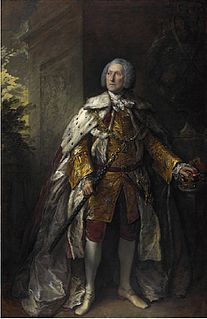 W
WGeneral John Campbell, 4th Duke of Argyll KT PC, was a British Army officer and Scottish Whig politician who sat in the House of Commons between 1713 and 1761. From 1729 to 1761 he was known as John Campbell of Mamore.
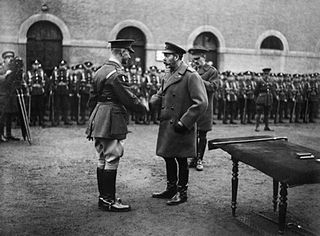 W
WMajor General Daniel Marcus William Beak, was a British Army officer and an English recipient of the Victoria Cross, the highest award for gallantry in the face of the enemy that can be awarded to British and Commonwealth forces.
 W
WDavid Revell "Darkie" Bedell-Sivright was a Scottish international rugby union forward who captained both Scotland and the British Isles. Born in Edinburgh, and educated at Fettes College where he learned to play rugby, he studied at Cambridge University and earned four Blues playing for them in the Varsity Match. He was first selected for Scotland in 1900 in a match against Wales. After playing in all of Scotland's Home Nations Championship matches in 1901, 1902 and 1903, Bedell-Sivright toured with the British Isles – now known as the British and Irish Lions – side that toured South Africa in 1903. After playing the first 12 matches of the tour, he was injured and so did not play in any of the Test matches against South Africa.
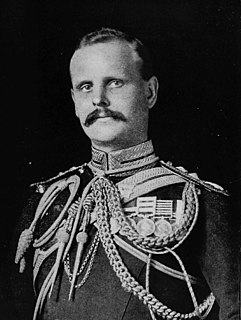 W
WField Marshal William Riddell Birdwood, 1st Baron Birdwood, was a British Army officer. He saw active service in the Second Boer War on the staff of Lord Kitchener. He saw action again in the First World War as Commander of the Australian and New Zealand Army Corps during the Gallipoli Campaign in 1915, leading the landings on the peninsula and then the evacuation later in the year, before becoming commander-in-chief of the Fifth Army on the Western Front during the closing stages of the war. He went on to be general officer commanding the Northern Army in India in 1920 and Commander-in-Chief, India, in 1925.
 W
WStanley Henry Parry Boughey VC was a British recipient of the Victoria Cross, the highest and most prestigious award for gallantry in the face of the enemy that can be awarded to British and Commonwealth forces.
 W
WGeneral Alexander Nelson Hood, 1st Viscount Bridport, 4th Duke of Bronté, of Cumberland Lodge, Windsor, of Cricket St Thomas in Somerset and of 12 Wimpole Street, London, was a British soldier and courtier.
 W
WColonel Sir Thomas Robert Gore Browne, was a British colonial administrator, who was Governor of St Helena, Governor of New Zealand, Governor of Tasmania and Governor of Bermuda.
 W
WSir Winston Leonard Spencer Churchill, was a British statesman, army officer, and writer. He was Prime Minister of the United Kingdom from 1940 to 1945, when he led the country to victory in the Second World War, and again from 1951 to 1955. Apart from two years between 1922 and 1924, Churchill was a Member of Parliament (MP) from 1900 to 1964 and represented a total of five constituencies. Ideologically an economic liberal and imperialist, he was for most of his career a member of the Conservative Party, as leader from 1940 to 1955. He was a member of the Liberal Party from 1904 to 1924.
 W
WMajor-General Walter Edmond Clutterbuck was a British Army officer who fought during both the First and Second World Wars.
 W
WJohn Manson Craig, VC was a British Army officer and Scottish recipient of the Victoria Cross, the highest award for gallantry in the face of the enemy that can be awarded to British and Commonwealth forces.
 W
WMajor-General Sir Arthur Edward Augustus Ellis, was a British Army officer and courtier in the Household of King Edward VII and Queen Alexandra.
 W
WLieutenant Colonel Frederick Cockayne Elton VC was an English recipient of the Victoria Cross, the highest and most prestigious award for gallantry in the face of the enemy that can be awarded to British and Commonwealth forces.
 W
WMajor John Alexander Fraser GC MC and Bar was a British colonial officer who was posthumously awarded the George Cross, the highest British award for bravery out of combat, for his "magnificent conduct" and "outstanding courage" in resisting Japanese torture during the Second World War.
 W
WLieutenant General Gerald Littlehales Goodlake VC was an English recipient of the Victoria Cross, the highest and most prestigious award for gallantry in the face of the enemy that can be awarded to British and Commonwealth forces.
 W
WGeneral William Gordon, of Fyvie, was a British general and courtier. He was several times returned to Parliament by the interest of the Duke of Marlborough, and precipitated a family quarrel with his nephew, the Duke of Gordon, by commandeering a regiment that the latter was raising.
 W
WMajor-General James Grant was born in Middlesex about 1778, the son of James Grant of Dalvey, of the line of the Baronets Grant of Dalvey, Elgin, themselves an offshoot of Grant of Grant. His father was an official of the East India Company and served in India for many years before retiring to Vache Park, Buckinghamshire and later to Goldington Grange, Hertfordshire. His actual mother is not yet known, although his step-mother was Harriet Montagu, daughter of the 5th Earl of Sandwich.
 W
WMajor-General Sir Edmund Hakewill-Smith KCVO CB CBE MC was a senior British Army officer who served in both World War I and World War II.
General James Inglis Hamilton was a Scottish soldier. He enlisted in the British Army in 1755 and commanded several regiments. He was the only colonel of the 113th Regiment of Foot. During the Seven Years' War (1756–1763), Hamilton fought in the Siege of Fort St Philip, the Raid on St Malo, and the Capture of Belle Île.
 W
WLieutenant-General Sir James Leith was a Scottish soldier who served in the British Army, commanding the 5th Division in the Duke of Wellington's Anglo-Portuguese Army at several critical battles during the Peninsular War between 1810 and 1813.
 W
WLieutenant-Colonel Sir Henry Berkeley Fitzhardinge Maxse was a Newfoundland colonial leader and a captain during the Crimean War.
 W
WSir Herbert Eustace Maxwell, 7th Baronet, was a Scottish novelist, essayist, artist, antiquarian, horticulturalist, prominent salmon angler and author of books on angling and Conservative politician who sat in the House of Commons from 1880 to 1906.
 W
WSir William James Montgomery-Cuninghame, 9th Baronet was a British Army officer from Scotland, Conservative politician and Victoria Cross recipient.
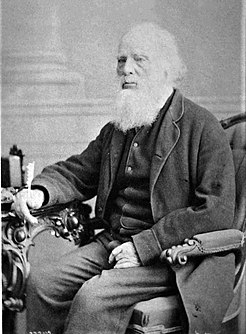 W
WJohn Wedderburn Dunbar Moodie was a Scottish-born army officer, farmer, civil servant and writer in early Canada.
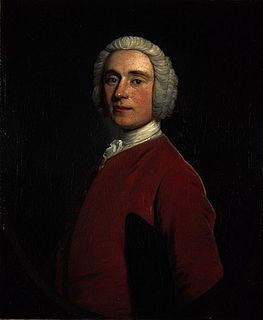 W
WGeneral James Murray was a Scottish army officer, whose lengthy career included service as colonial administrator and governor of the Province of Quebec and later as Governor of Minorca from 1778 to 1782. His term in Quebec was notably successful, and marked with excellent relationships with the conquered French-Canadians, who were reassured of their traditional rights and customs.
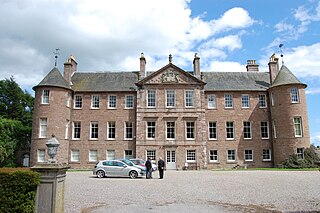 W
WGeneral William Maule, 1st Earl Panmure (1700–1782) was a Scottish soldier and politician who sat in the House of Commons for 47 years from 1735 to 1782.
 W
WField Marshal Lord William Paulet, was a senior British Army officer. During the Crimean War he served as Assistant Adjutant-General of the Cavalry Division, under Lord Lucan, at the Battle of Alma in September 1854, at the Battle of Balaklava in October 1854 and at the Battle of Inkerman in November 1854 as well as at the Siege of Sevastopol during the Crimean War. He was then given command of the rear area, including the Bosphorus, Gallipoli and the Dardanelles before returning to England. He later became Commander of the 1st Brigade at Aldershot in 1856, General Officer Commanding South-West District in 1860 and finally Adjutant-General to the Forces in 1865.
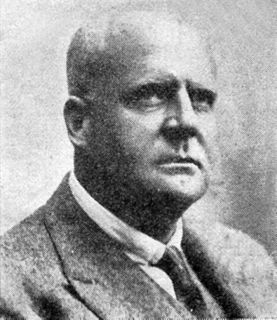 W
WDeneys Reitz (1882—1944), son of Francis William Reitz, was a Boer warrior who fought in the Second Boer War for the South African Republic against the British Empire. After a period of exile in Madagascar he returned to South Africa, where he became a lawyer and founded a major South African law firm. In the First World War he fought for the Union of South Africa against the German Empire, and then was an officer in the British Army, commanding several battalions. In later life he was a politician. Deneys Reitz was educated at Grey College, Bloemfontein.
 W
WSir George Olaf Roos-Keppel, was a British military officer who served in the capacities of Political Agent to the Governor-General in Kurram and Khyber, and later as Chief Commissioner, North West Frontier Province from 1908 till 1919. He is also known for his role in 3rd Afghan War.
 W
WArchibald Henry Macdonald Sinclair, 1st Viscount Thurso,, known as Sir Archibald Sinclair, Bt, between 1912 and 1952, and often as Archie Sinclair, was a British politician and leader of the Liberal Party.
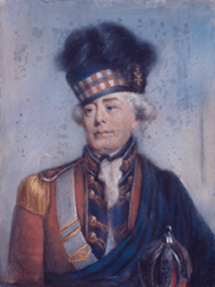 W
WJohn Small was a career British military officer from Scotland who played a key role in raising and leading the 84th Regiment of Foot during the American Revolution. After the war, he settled with many of the men of the 84th Regiment in Douglas Township, Hants County, Nova Scotia. The British Crown granted land to soldiers after the war to encourage settlement, especially in Upper Canada.
 W
WMajor-General Sir Kenneth William Dobson Strong was a senior officer of the British Army who served in the Second World War, rising to become Director General of Intelligence. A graduate of the Royal Military Academy Sandhurst, Strong was commissioned into the 1st Battalion, Royal Scots Fusiliers in 1920. After service as an Intelligence Officer with his battalion in Ireland from 1920 to 1922 during the Irish War of Independence, he volunteered for service as an interpreter and was posted to Germany with the British Army of the Rhine. In 1935 he returned to Germany as a member of the International Force supervising the Saarland plebiscite. Afterwards, he joined the German Intelligence Section at the War Office. In 1937 he became Assistant Military attaché in Berlin.
 W
WSir James Matthew Stronge, 3rd Baronet DL, JP (25 November 1811 – 11 March 1885, succeeded to the baronetcy on the death of his 78-year-old father, Sir James Stronge 2nd baronet, on 2 December 1864. He was a member of the Stronge family and was born in Tynan Abbey, County Armagh. His mother was Isabella Calvert, Lady Stronge, the eldest daughter of Nicholas Calvert M.P., of Hunsdon House, Hertfordshire, and his wife The Hon. Frances Pery, daughter of the Viscount Pery.
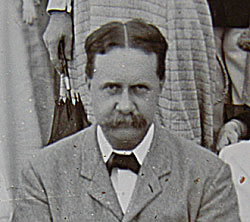 W
WSir Richard Carnac Temple, 2nd Baronet, was the British Chief Commissioner of the Andaman and Nicobar Islands and an anthropological writer.
 W
WMarshal of the Royal Air Force Hugh Montague Trenchard, 1st Viscount Trenchard, was a British officer who was instrumental in establishing the Royal Air Force. He has been described as the "Father of the Royal Air Force."